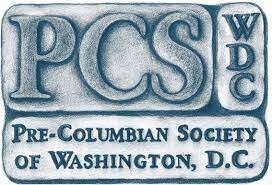Evaluating Maya Expansionary and Integrative Strategies: What Can Be Learned from the Copan Polity's Interactions with its Non-Maya Neighbors by Erlend Johnson, PhD candidate, Tulane University.
This meeting will be held at the Charles Sumner School, 17th & M Streets, N.W., Washington, D.C.
The meeting starts with refreshments at 6:45 pm and the lecture begins at 7:15 pm.
Scholarship on the ancient lowland Maya has tended to develop black-box models describing the Classic period "polity". This presentation attempts to open up this black-box in order investigate the dynamic processes by which lowland Maya polities functioned. It focuses on one aspect of Maya statecraft: the integrative strategies employed by Maya rulers as they expanded their polities. The Classic period Maya polity of Copan provides an ideal place to study these processes because of its position at the edge of the Maya world. The Copan polity was surrounded by non-Maya neighbors with distinct cultures and political structures; evidence for both material links and structural transformations instigated by the Copan polity are more visible there than at contemporary sites in the Maya heartland. This presentation examines both the timing and degree of political changes during the Classic period (AD 100-900) in the Cucuyagua and Sensenti valleys located 25km and 50km southeast of Copan, respectively. Results from survey and excavation data suggest that a Maya lowland style political hierarchy was adopted in the Cucuyagua valley by the Late Classic period (AD 600-900), suggesting that it was integrated into the Copan polity. Evidence of a fragmentary, heterarchical political system in the Sensenti valley during the Late Classic period suggests that this area remained outside of Copan’s political hegemony.
Erlend Johnson is a doctoral candidate at Tulane University and is affiliated with the Mesoamerican Research Institute. Erlend’s research, which is directed by Marcello Canuto, focuses on the integrative strategies employed by the rulers of Maya polities as they expanded into and absorbed surrounding populations. Research for his dissertation has occurred in the Cucuyagua and Sensenti valleys located southeast of the Classic Maya polity of Copan. Erlend has participated in research projects in the Dominican Republic, Guatemala, and Louisiana in addition to current and past research in Honduras. He received an Mphil in Archaeology at the University of Leiden in 2009 and his BA at Kenyon College in 2007. Erlend is a Summer Fellow in Pre-Columbian Studies at Dumbarton Oaks.

